CREATION
As of late, Africa has taken splendid steps in general well-being, specifically in immunization endeavors. Outperforming overall midpoints, African global areas have approved compelling techniques and hearty frameworks that guarantee broad immunization inclusion. This success story demonstrates the mainland's strength, progress, and commitment to enhancing the overall well-being of its people.
 |
| Vaccines are among the most effective and cost-efficient investments in health and development in history |
Africa has made a substantial contribution to public health by outperforming global average immunization rates. This success demonstrates the continent's unwavering efforts to improve healthcare infrastructure, promote vaccine accessibility, and strengthen community engagement programmes. To effectively address infectious diseases, several African countries have launched comprehensive vaccination campaigns, which have been supported by international alliances and local government initiatives.
 |
| Vaccination has had a profound impact on the health of the world's population |
These efforts have resulted in increased immunization coverage, decreased incidence of avoidable diseases, and improved overall health outcomes. Immunization success is a critical step towards attaining long-term health development in Africa, demonstrating the region's ability to overcome obstacles and make significant advances in public health. This success not only saves millions of lives, but also establishes an example for other regions to follow.
Key Inoculation bundles
Early stages of Vaccination
Applications focused on young sickness alongside measles, polio, and diphtheria have huge noticeable satisfaction. Unnecessary inclusion rates have achieved an extraordinary markdown in pervasiveness quotes and, in a couple of cases, the near end of positive diseases.
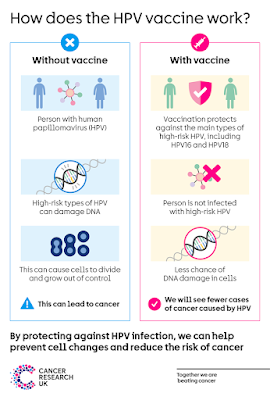 |
| A healthy immune system fights off intruders |
The early beginnings of vaccination can be traced back to the 18th century, when Edward Jenner pioneered the smallpox vaccine. Jenner infected a youngster with cowpox after noticing that milkmaids who got cowpox did not get smallpox. This procedure, known as variolation, was developed and eventually led to the creation of the first genuine vaccine. Louis Pasteur's work in the late 1800s improved vaccination science by developing vaccinations for rabies and anthrax.
 |
| The influenza virus vaccine can help your child avoid the illness |
Pasteur's germ theory of illness served as the theoretical underpinning for the development of vaccinations against a variety of infectious diseases. These early triumphs paved the way for modern immunology and mass vaccination, which have subsequently eradicated smallpox and greatly lowered the frequency of many other infectious diseases around the world.
Coronavirus Inoculation
As of late, Africa has taken splendid steps in general well-being, specifically in immunization endeavors. Outperforming overall midpoints, African global areas have approved compelling techniques and hearty frameworks that guarantee broad immunization inclusion. This success story demonstrates the mainland's strength, progress, and commitment to enhancing the overall well-being of its people.
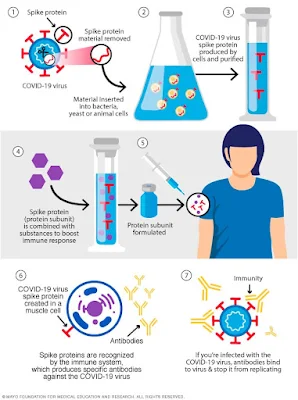 |
| If you've ever had an adverse reaction, inform the healthcare personnel during your visit before getting vaccinated. |
Africa has made a substantial contribution to public health by outperforming global average immunization rates. This success demonstrates the continent's unwavering efforts to improve healthcare infrastructure, promote vaccine accessibility, and strengthen community engagement programmes. To effectively address infectious diseases, several African countries have launched comprehensive vaccination campaigns, which have been supported by international alliances and local government initiatives.
 |
| Reduce your risk of serious sickness that could necessitate hospitalization. |
These efforts have resulted in increased immunization coverage, decreased incidence of avoidable diseases, and improved overall health outcomes. Immunization success is a critical step towards attaining long-term health development in Africa, demonstrating the region's ability to overcome obstacles and make significant advances in public health. This success not only saves millions of lives, but also establishes an example for other regions to follow.
The Country of Immunization in Africa
The advancement of vaccination all through Africa is an extraordinary public wellness story, displaying the landmass' obligation to infection counteraction and well-being improvement. Nations along with Rwanda, Kenya, and Ghana have arisen as pioneers in inoculation endeavors, accomplishing high immunization protection by means of creative procedures and tough well-being frameworks.
 |
| To regain momentum, Africa must vaccinate 33 million youngsters. |
Rwanda, for instance, has executed a total immunization application with a solid consideration of local area well-being laborers who ensure immunizations arrive at each niche for the use of 'a'. Kenya has utilized cell time to music inoculation measurements and send suggestions to guardians, fundamentally improving antibody take-up. Ghana's presentation of the electronic Inoculation Vault has smoothed out reality assortment and checking, improving the proficiency of immunization crusades.
 |
| Health workers prepare to give the world's first malaria vaccine as part of a pilot programme |
These global areas represent how compelling vaccination methods can have enormous medical advantages, bringing down the commonness of antibody preventable sicknesses and adding to the average general well-being strength. The accomplishment of these worldwide areas fills in as a model for other African nations planning to support their vaccination applications and gain similar public wellness achievements.
Accomplishments in Antibody protection
African countries have consistently achieved outstanding immunization rates, beating global averages in a few crucial areas. Those achievements are credited to composed endeavors with the guide of states, worldwide gatherings, and neighborhood networks to cause specific immunizations to accomplish even the greatest distant regions.
 |
| Antibodies are essential molecular messengers that are extremely specific to their antigens |
Antibodies have revolutionized healthcare by providing significant protection against a wide range of diseases. They may be crucial immune gadget components able to recognize and neutralize invaders, including microorganisms and viruses. Advances in antibody research have resulted in improved vaccines that train the immune system to recognize and attack specific diseases, dramatically reducing their recurrence.
Monoclonal antibodies were developed to treat disorders such as cancer, autoimmune difficulties, and infectious diseases, providing targeted treatment with fewer adverse effects. During the COVID-19 pandemic, antibody-based therapeutics, such as convalescent plasma and monoclonal antibodies, were critical to treatment and preventative efforts. Ongoing research improves antibody efficacy, increasing its restorative applications and improving global health outcomes.
Procedures for Progress
To make meaningful progress, begin by identifying clear objectives and goals. Conduct extensive study to better grasp the existing landscape and create a strategic plan. Allocate resources carefully, making sure they support the goals and timescales established.
 |
| Progress Health Education is an accredited CPD & training provider in the Australian health, disability, and aged care sectors |
Use regular monitoring and evaluation to measure progress and make required changes. Encourage open communication within the team and with stakeholders to ensure alignment and transparency. To remain competitive and innovative, invest in learning and development on a continuous basis. Manage risks proactively by identifying potential roadblocks and developing mitigation methods.
 |
| Data on community health status from an epidemiological perspective |
Finally, congratulate your achievements and recognize efforts to increase morale and motivation. By following these procedures in a methodical manner, organizations can ensure ongoing progress and success in attaining their goals.
Local area Commitment
Network contribution has been a foundation of Africa's immunization accomplishment. Neighborhood pioneers, medical service individuals, and organization well-being volunteers assume fundamental parts in teaching the general population, tending to immunization aversion, and ensuring that antibodies are available to all.
 |
| Utilize your medical facility's marketing resources to educate the public about current health trends. |
Local community involvement is critical to Africa's public health successes, notably in immunization. Community engagement and grassroots initiatives are critical in ensuring that immunization programmes reach every sector of the population. Local leaders, health workers, and volunteers actively participate in vaccine awareness programmes, dispelling vaccine myths and encouraging vaccination. This grassroots involvement improves trust in healthcare systems and a sense of ownership among community people over health outcomes. Furthermore, local devotion leads to long-term healthcare solutions that are adapted to each community's individual needs.
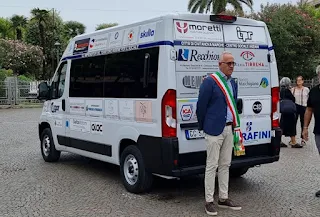 |
| The healthcare that people receive in hospitals or clinics is only a minor part of their overall health. |
It enables people to take control of their health by making immunization services more easy and consistent. African communities increase their resistance against infectious illnesses and make a substantial contribution to meeting global immunization goals by leveraging local knowledge and resources. This local commitment emphasizes the importance of community-driven activities to advance public health priorities across the continent.
Progressive delivery strategies
Present-day methods, comprehensive-of-cell centers and house-to-house immunization crusades, have been essential in achieving underserved populations. These systems ensure that antibodies are delivered accurately, even in hard-to-accomplish regions.
 |
| Phased roll-outs might be viewed as a slight variation on progressive delivery |
African immunization success has relied heavily on progressive delivery tactics. Mobile clinics, community health workers, and digital health platforms are some of the tactics used to guarantee vaccines reach even the most rural and disadvantaged locations. Mobile clinics visit remote villages to provide immunizations and health education on the spot. Community health workers, who are frequently locals, play an important role in fostering trust and spreading knowledge about the necessity of immunizations.
These efforts have been bolstered by digital health platforms and mobile technology, which allow for more accurate tracking of vaccination dates and supplies. SMS reminders and electronic health records ensure that vaccines are administered on time and that resources are managed efficiently. These creative measures have dramatically raised immunization rates, decreased the prevalence of preventable diseases, and enhanced the continent's overall healthcare system.
Solid Organizations
Coordinated effort with worldwide organizations, by comprehensive of the area well-being association (WHO) & UNICEF, has given basic aide in expressions of speculation, antibody convey, and specialized help. These associations have empowered African countries to quickly increase their inoculation endeavors.
 |
| With access to a variety of data, you can swiftly recognize and respond to new healthcare trends |
Solid organizations play an important part in Africa's immunization success story. The World Health Organization (WHO), UNICEF, GAVI, the Vaccine Alliance, and a number of non-governmental organizations have all contributed financially, technically, and logistically. These organizations work with African governments to develop and administer successful immunization programmes that reach even the most remote locations. Local organizations and community groups also make substantial contributions by organizing grassroots education and awareness initiatives that increase vaccine acceptance and uptake.
 |
| Nonmedical factors influencing health outcomes are referred to as social determinants of health (S.D.H) |
Their efforts to train healthcare professionals and build effective cold chain systems assure vaccine safety during storage and shipment. The collaboration of these international and local organizations has resulted in a strong framework for immunization, leading to better public health results across the continent.
Various Reconnaissance frameworks
Powerful following and reconnaissance frameworks assist with following immunization inclusion and turmoil episodes. These reality-driven procedures consider convenient medication and the designation of sources from which they're wished most.
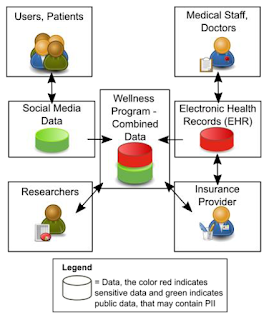 |
| Knowing what they are will allow you to avoid pitfalls and increase your chances of success |
Africa's immunization success can be attributed to a range of monitoring systems designed to monitor and strengthen vaccination regimens. Comprehensive surveillance systems, community health networks, and real-time data analytics are some of the frameworks available. Surveillance systems are crucial for tracking disease outbreaks and vaccination coverage, which allows for quick responses and strategic planning. Community health networks, which include local health workers and volunteers, enable grassroots monitoring and ensure that immunizations reach even the most isolated populations.
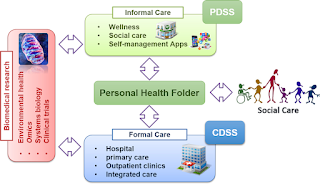 |
| This paper includes the most prominent compliance frameworks and standards that can serve as a guide for healthcare organisations |
Real-time data analytics, facilitated by digital health systems, provide meaningful insights regarding vaccination trends and gaps, enabling for prompt corrective action. African countries can use these reconnaissance frameworks to sustain high immunization rates, avert disease outbreaks, and respond to emerging health concerns. This integrated approach enables a proactive approach to protecting public health and accomplishing long-term immunization goals.
Requesting circumstances & arrangements
"Occurrences and courses of action" regularly allude to the remarkable circumstances or data encompassing an event, situation, or plan. This will be composed of variables consisting of timing, locale, sources, people, objectives, and any calculated worries. For instance, if examining a business venture meeting, events and arrangements could include the date, time, plan, participants, setting, and innovation expected for shows.
 |
| Ensure that workers and their representatives have full participation in safety and health committees where they exist. |
In confidential settings, it could include arranging an encounter, in which conditions and arrangements encapsulate venture dates, dwelling appointments, exercise conscious, and transportation arrangements. The information in this data empowers you to guarantee that plans are pleasantly organized and completed without any problems. Clear dispatch of events and plans ensures that each one of the gatherings concerned is educated and coordinated along these lines.
 |
| A health and safety policy is a document outlining an organizations commitment to, & procedures for, health and safety |
It's fundamental to remember possibilities and adaptability in game plans to manage surprising changes or required circumstances. Variable administration of circumstances and arrangements adds to a triumphal result, whether in business, visit, occasions, or any conscious movement requiring company and coordination.
Antibody Aversion
Immunization reluctance remains a task in a couple of districts. To battle this, African countries have applied total tutoring efforts to dissipate fantasies and give exact insights about the benefits and security of immunizations.
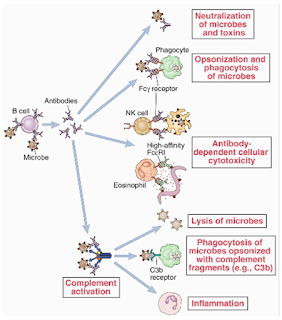 |
| "We took a very broad approach to looking at the various factors that are related to different preventative health behaviours," |
Antibody aversion is a condition in which the immune system is resistant or hesitant to create particular antibodies against certain infections or antigens. This syndrome can complicate vaccination and immune response scenarios, affecting overall health results. Genetic predispositions, environmental variables, and earlier exposure to related antigens are all significant contributors to antibody aversion. Antibody aversion strategies may include personalized medicine approaches, in which vaccines and treatments are tailored to individual immunological profiles.
 |
| The opposite side, marginalised people of colour, has been underserved by the current public health system. |
The goal of research is to better understand the underlying processes of antibody aversion and to create therapies that effectively boost immune responses. Addressing antibody aversion is critical for increasing vaccine efficacy, treating infectious illnesses, and developing immunotherapy treatments in clinical settings.
Framework & Strategies
Calculated difficulties, like keeping bloodless chains and accomplishing them distant, are tended to through interests in foundation and imaginative conveyance techniques. Reinforcing the medical services framework guarantees that immunizations are astonishing and are directed effectively.
 |
| Examining how skills & talents are identified & developed throughout the health-care workforce |
The continued development of the medical care foundation is critical for promoting global health equity and sustainability. Significant progress may be made in improving healthcare outcomes around the world by focusing on new research and technology, increasing healthcare accessibility, prioritizing preventative medicine, investing in workforce training, and establishing collaborative relationships.
 |
| Making Life Better serves as the strategic foundation for public health |
These initiatives not only address current healthcare difficulties, but also prepare health systems to efficiently manage future crises and epidemics. Emphasizing community engagement and patient-centered care ensures that healthcare services are tailored to local needs and preferences. Continued adherence to these principles will lay a solid foundation for achieving universal health coverage and promoting health and well-being for all, resulting in a healthier and more resilient global population.
Subsidizing & assets
Getting sufficient financing for immunization programs is fundamental. African state-run administrations, with assistance from overall contributors and organizations, have focused on subsidizing immunizations. It is manageable and hard to guarantee application.
 |
| Adoption of health goods could help to reduce the burden of infectious diseases in poor countries |
Subsidizing refers to monetary help furnished by the authorities or other establishments to aid agencies, companies, or individuals. Those subsidies can be available a lot of paperwork, inclusive of presents, tax breaks, or low-hobby loans, and intention to reduce costs, encourage funding, or guide economic development. By way of decreasing the financial burden, subsidies can make certain activities extra viable, promote innovation, or make certain the availability of essential offerings.
 |
| There has been a lot of debate in the United States over the costs and benefits of publicly subsidized health insurance |
Property is assets owned with the aid of individuals, companies, or governments which have a monetary price and can provide a destination benefit. These consist of tangible objects like property, equipment, and stock, as well as intangible gadgets like patents, logos, and goodwill. Powerful control of property is crucial for economic balance and increases, because it entails maximizing the price and utility of those resources, even minimizing associated risks and fees.
Future headings
 |
| There are different levels or areas of health care practice within the greater health system |
Expanding Immunization applications
Expanding on the satisfaction of current applications, African nations are increasing their inoculation tasks to envelop more noteworthy sicknesses and age organizations. This far-reaching strategy aims to work on normal general well-being and save you after episodes.
 |
| To enhance immunization rates, the Task Force proposes that healthcare providers visit patients at home. |
The expansion of immunization applications is critical to global health improvement. Aside from standard vaccines, new innovations are targeting a broader variety of ailments, including chronic illnesses like cancer and emerging viruses like COVID-19 variations. Innovations in vaccine delivery technologies, such as mRNA technology, have sped up development, allowing for rapid response to health risks.
 |
| Immunization has made a massive impact on global health |
Furthermore, expanding immunization efforts to neglected areas through global initiatives and enhanced logistics assures more coverage and protection. Improving public health education about vaccine relevance and countering misinformation are critical steps towards raising immunization rates. Overall, extending the scope and reach of immunizations will help to avoid disease outbreaks, lower healthcare costs, and promote long-term global health security.
Further developing Medical Care Foundation
Getting through financing for a medical care foundation, alongside the tutoring of medical service laborers and the improvement of supply chains, will additionally fortify immunization endeavors. These updates ensure that designs are versatile and equipped for answering well-being dangers.
 |
| The healthcare industry includes all businesses that provide and coordinate medical and related goods and services |
The continued development of the medical care foundation is critical for promoting global health equity and sustainability. Significant progress may be made in improving healthcare outcomes around the world by focusing on new research and technology, increasing healthcare accessibility, prioritizing preventative medicine, investing in workforce training, and establishing collaborative relationships.
 |
| Health systems are organizations that exist to satisfy the health requirements of specific communities |
These initiatives not only address current healthcare difficulties, but also prepare health systems to efficiently manage future crises and epidemics. Emphasizing community engagement and patient-centered care ensures that healthcare services are tailored to local needs and preferences. Continued adherence to these principles will lay a solid foundation for achieving universal health coverage and promoting health and well-being for all, resulting in a healthier and more resilient global population.
Utilizing innovation
The utilization of age in following and conveying immunizations will assume an undeniably more basic part: advanced well-being gear, comprehensive computerized well-being measurements and portable wellness bundles, enlivened reality's assortment, following, and patient commitment. Innovation is critical to improving global public health outcomes.
 |
| One example of a beneficial healthcare innovation is the use of drones to transport medical supplies |
Healthcare accessibility and efficiency have increased dramatically as a result of technological breakthroughs such as artificial intelligence, telemedicine, and mobile health solutions. These innovations make remote diagnostics easier, boost data-driven decision-making, and optimize resource allocation. Furthermore, vaccine distribution advances such as cold chain technology and mobile clinics enable equal access to immunization in rural places. Beyond technology, encouraging community participation through social media and outreach programmes promotes health education and increases vaccine acceptability.
 |
| V.R technology is commonly employed in the healthcare field |
Collaboration among governments, healthcare providers, technology businesses, and communities is becoming increasingly important as we develop. This collaborative approach, along with a dedication to ongoing development and flexibility, will generate long-term success in public health, ultimately benefiting communities globally.
CONCLUSION
Africa's progress in unparalleled worldwide midpoints in immunization is a mind-blowing accomplishment that features the landmass' obligation to general well-being. Through local area commitment, current strategies, and vigorous organizations, African global areas have set a organization for compelling immunization applications.
 |
| Immunization is one of the most successful and cost-efficient public health interventions known, preventing nearly 4 million deaths annually |
Through persisting to expand on these triumphs and tending to continuously requesting circumstances, Africa can likewise embellish its wellness results and add to worldwide public wellness upgrades. Africa's ability to outperform global immunization rates reflects its strong public health initiatives and coordinated efforts. This result emphasizes the significance of ongoing investment in health infrastructure, new delivery techniques, and effective community participation.
 |
| Develop a written statement detailing the organizations general health and safety policy |
African countries have achieved tremendous progress against vaccine-preventable diseases by utilizing international collaborations and prioritizing massive immunization efforts. This achievement not only improves public health outcomes, but also serves as a model for other places to follow. Continued adherence to these standards will be critical to maintaining and expanding on this progress, ultimately contributing to a healthier and more resilient global community.


















